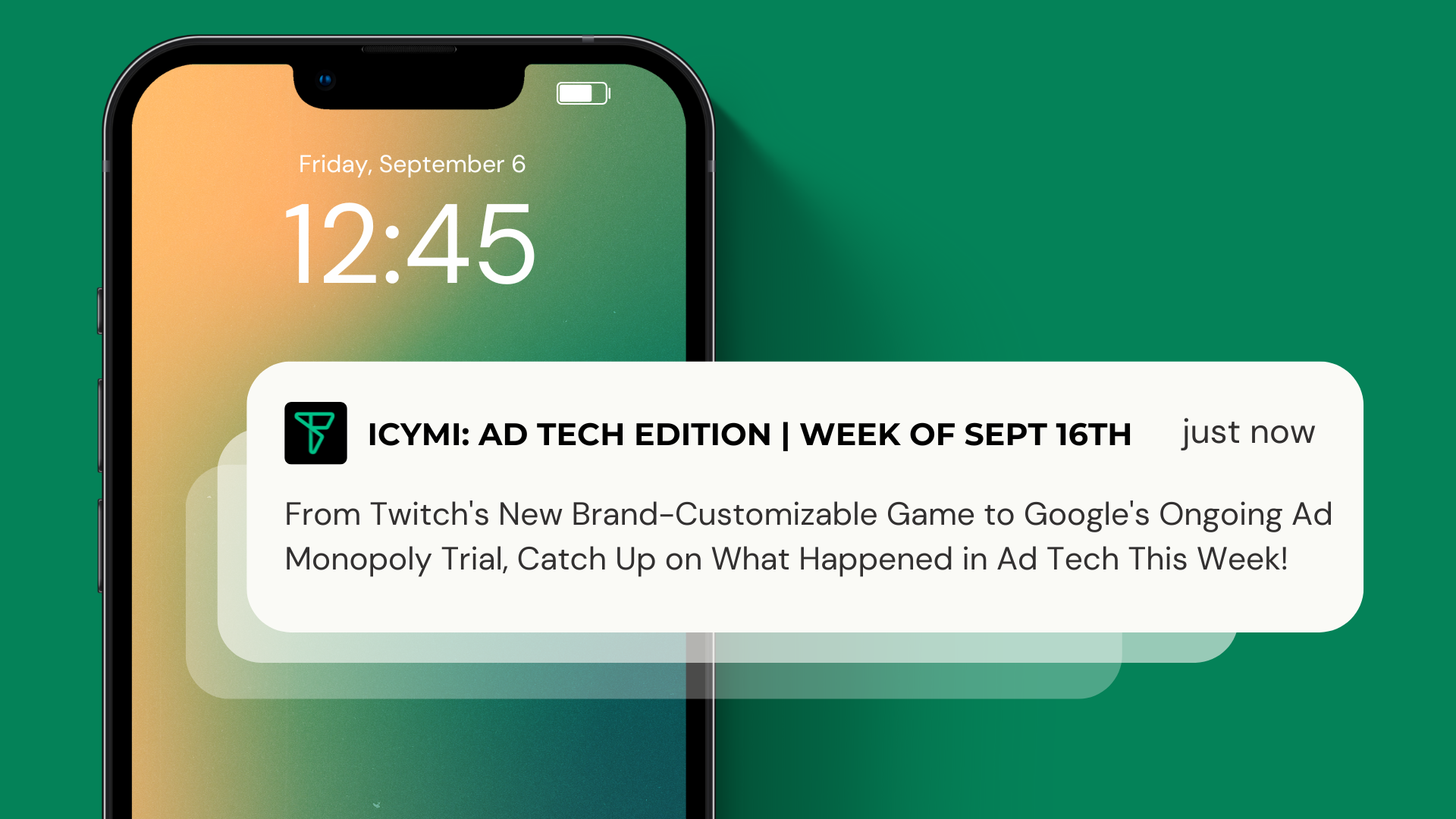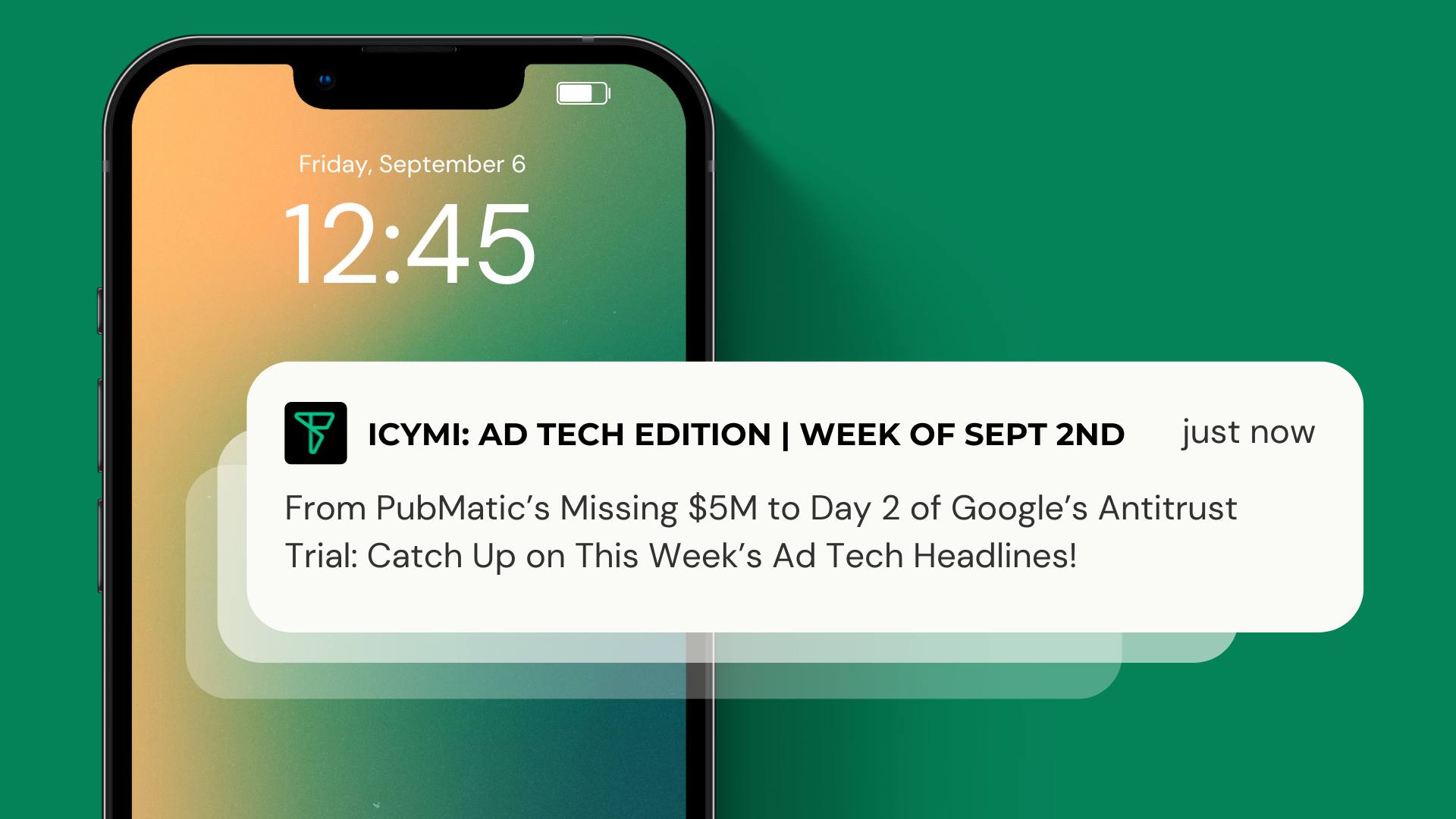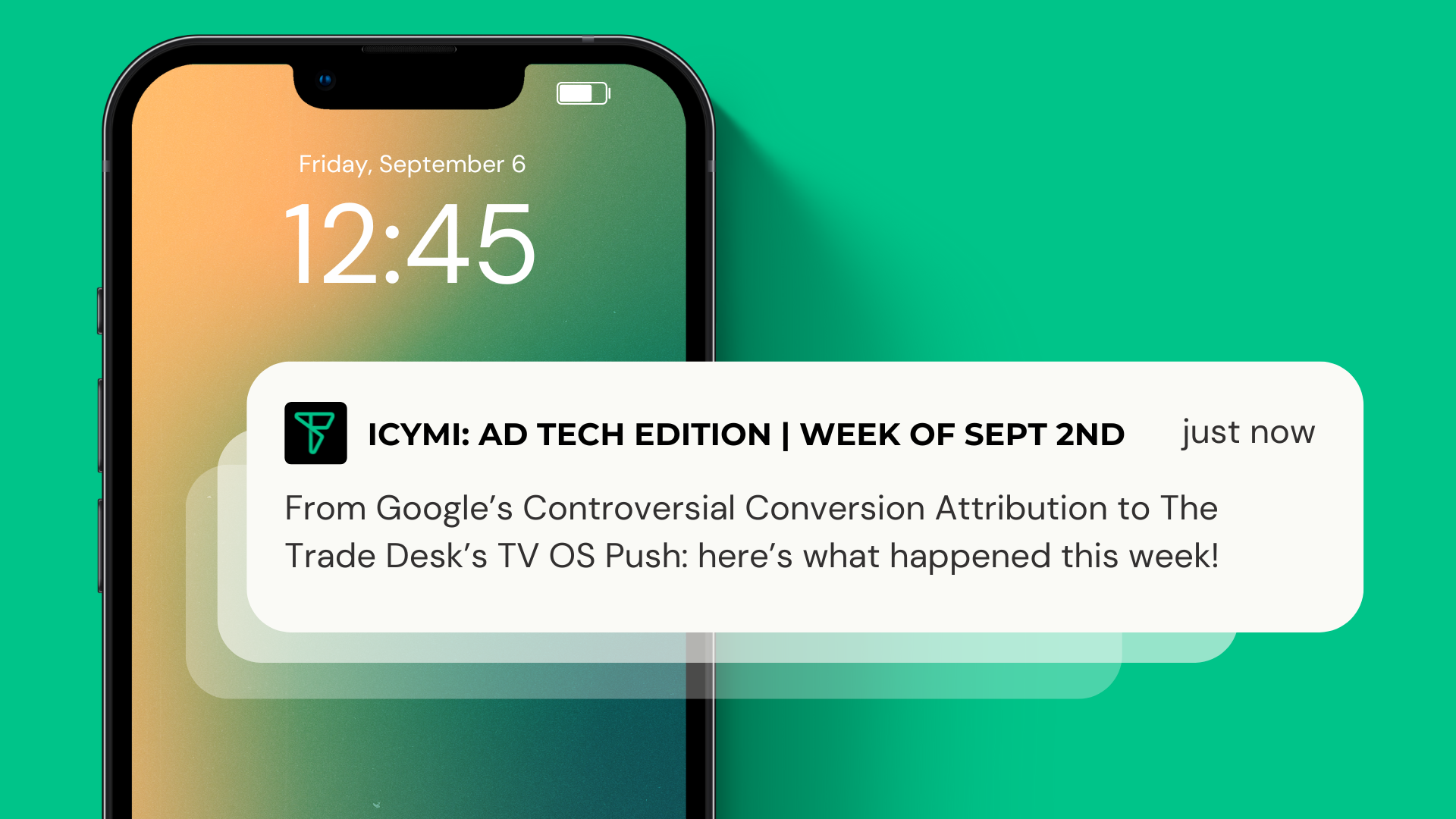Bits and Bobs from around the industry:
- The IAB Tech Lab is Seeking Comment On a New Data Deletion Framework
- Wunderkind’s Publisher Growth Suite Bridges The Gap Between AdTech, MarTech For Media Orgs
- Google’s Helpful Content Update Hits UGC; Programmatic Ads On Netflix: Yay Or Nay?
The IAB Tech Lab is Seeking Comment On a New Data Deletion Framework
The IAB Tech Lab is seeking public feedback on a framework designed to address consumer requests for data deletion, responding to the “Right to Delete” stipulated in state-level privacy laws and the GDPR. The framework, outlined on GitHub, aims to create a standardized approach for data deletion across the ad supply chain, including data brokers, bid requests, and embedded pixels in ad creative. Anthony Katsur, CEO of the IAB Tech Lab, emphasized the need for a comprehensive solution and encouraged input from industry stakeholders like SSPs, DSPs, exchanges, and publishers. The proposed framework, if implemented as intended, could have global applicability, allowing it to align with various privacy legislations worldwide. Katsur noted that the framework might undergo further modifications to accommodate new privacy laws, such as California’s Delete Act, which mandates data brokers to delete “all personal information” upon consumer requests every 45 days starting in 2026.
Wunderkind’s Publisher Growth Suite Bridges The Gap Between AdTech, MarTech For Media Orgs
Wunderkind has launched its Publisher Growth Suite, a comprehensive offering for publishers to optimize audience value through a unified user experience. The suite, currently in private beta with partners such as CNN and AP News, integrates Marketing Technology (MarTech) and Advertising Technology (AdTech) to bridge the gap and provide tools for audience identification, email submissions, subscriptions, programmatic addressability, and high-yielding ad placements. The suite features a self-sustaining financial model that allows publishers to activate WunderKIND Ads, creating a new revenue stream to cover platform costs.
Key components of the Publisher Growth Suite include:
1. Wunderkind Identity Framework: A large-scale, deterministic identity solution for personalized messaging.
2. Personalized Decisioning Engine: An identity and intent-driven decisioning engine for meeting monetization and audience development goals.
3. Audience Development: A component for growing the known on-site audience, moving them through the funnel, and engaging them via email and text channels.
4. Ads Monetization: This feature provides high-yield ad placements and increased programmatic addressability, incorporating solutions like Unified ID 2.0.
The Chief Strategy Officer at The Trade Desk, Samantha Jacobson, emphasized the importance of offerings like Wunderkind’s Publisher Growth Suite in the context of the impending cookie deprecation and the increasing reliance on user opt-in for addressability and monetization. Trusted Media Brands, an early beta customer, reported positive outcomes, including year-over-year increases in magazine subscriptions (6%), newsletter signups (46%), and ad impressions served (84%).
Jesse Brewer, VP of Sales and Operations at Wunderkind, highlighted the suite’s focus on all stages of the reader journey, ensuring a win-win-win situation for publishers, advertisers, and consumers. The technology stack aims to provide stability and future growth for the digital publishing industry.
Google’s Helpful Content Update Hits UGC; Programmatic Ads On Netflix: Yay Or Nay?
Google recently implemented a search algorithm update favoring sites with superior user experiences. As part of this update, Google targets AI-generated content, especially chatbot content created solely for manipulating search results. Legitimate sites may also be affected, particularly those with significant user-generated content (UGC) using aggressive ad tactics. The update encourages publishers to assess their site content and monitoring practices to avoid downranking.
In other news, Netflix is investing in its programmatic ad tech stack, but media buyers express hesitancy due to high CPMs and slow momentum for Netflix’s ad tier. Advertisers remain cautious about spending heavily on Netflix programmatically until CPMs decrease. Meanwhile, Meta introduces new generative AI tools for ad copy and images, with restrictions on political ads and regulated industries to mitigate potential misinformation risks. Google and other platforms are also implementing similar restrictions on AI use in sensitive ad categories. Sixty percent of major brands plan to increase ad budgets in 2024, according to WFA and Ebiquity research. Additionally, Google experiments with text-based generative-AI tools, and TikTok faces criticism over content-related decisions.





